Tropical Storm Arthur has formed off the southeast coast and is expected to impact the Carolina coast, especially on Sunday night and Monday.
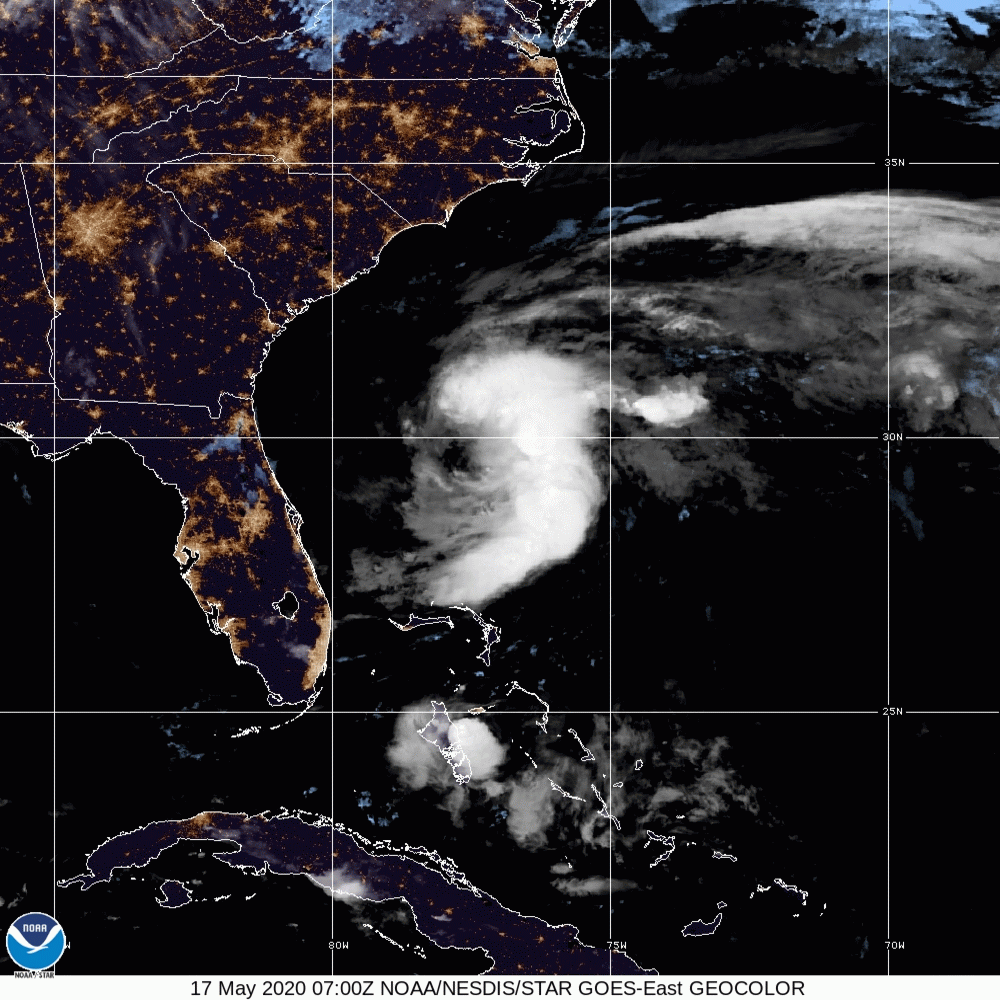
As of 2:00 p.m., Tropical Storm Arthur was moving north northeast at 9 mph with maximum sustained winds of 45 mph. The central pressure remains at 1002 mb. The current track takes Arthur near the Outer Banks of NC before quickly moving to the northeast and turning east north of Bermuda. Tropical Storm Warnings have been issued for areas shaded in blue.
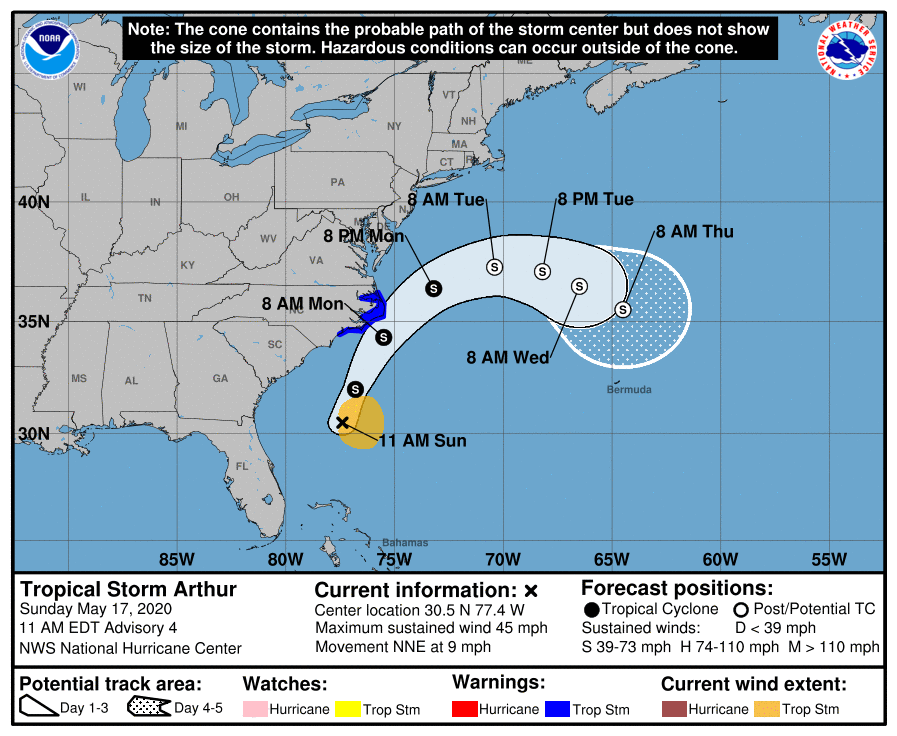
The storm is quickly moving northward and is expected to begin impacting southern portions of NC this evening. Heavy rain, tropical storm force winds, dangerous surf conditions and rip currents are expected as the system passes.
The GFS shows the quick moving nature of Arthur, which is expected to be pulling away from the coastal areas by Tuesday morning. You can also see the heavy rain that is expected to impact the Outer Banks .
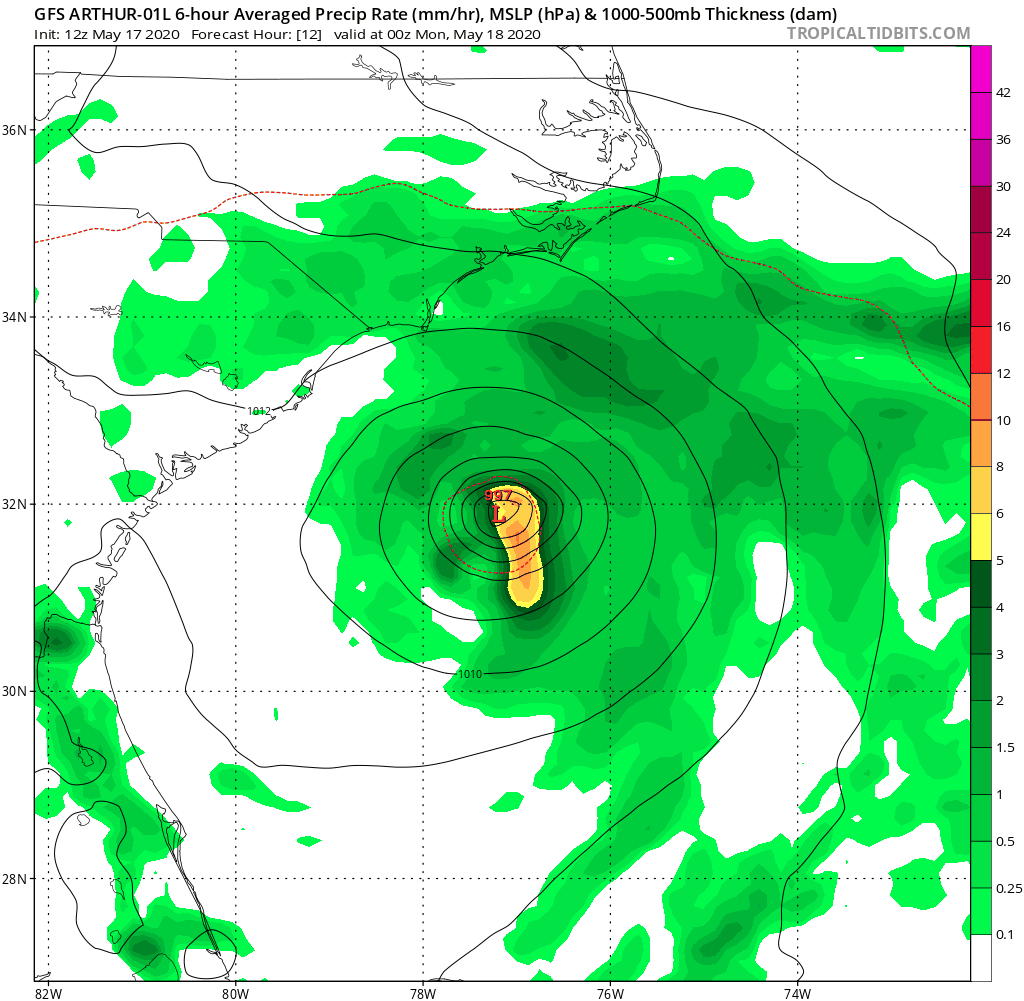
The good news is the system is expected to pass quickly, so the effects are expected to be limited. The Outer Banks are expected to receive the greatest impacts, which normally occurs when these systems track along the Gulf Stream. The west side of a tropical system is the weaker side, so that will also help to limit the impacts of Arthur.
Coastal flooding is possible along the Outer Banks due to the storm surge expected with Arthur.
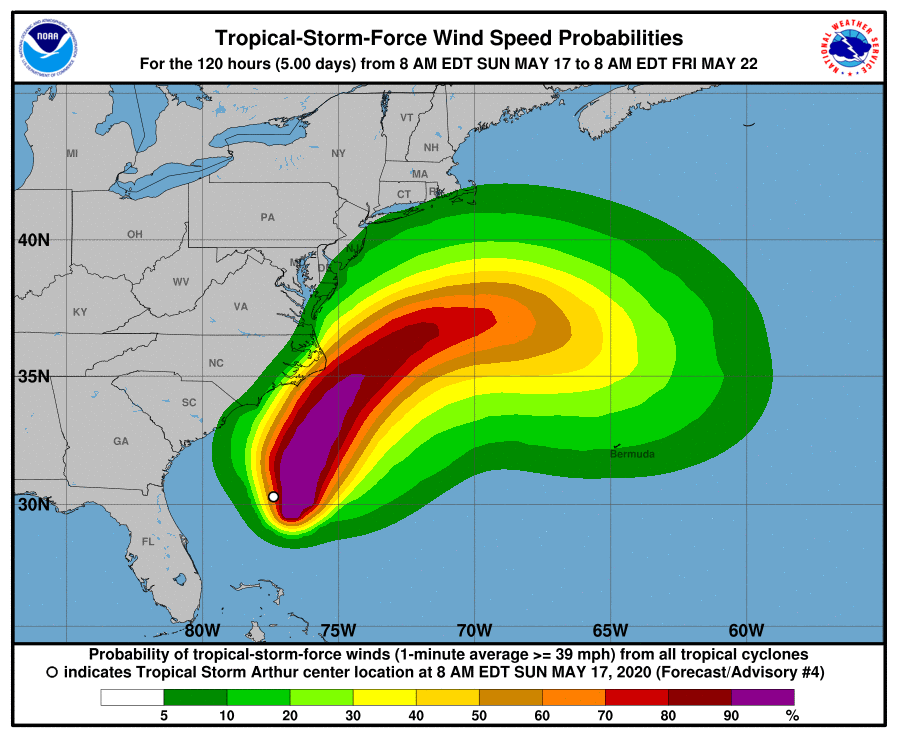
As noted in the picture above, the best chance to see tropical storm force winds are along the Outer Banks of NC. Cape Hatteras has the best chance, since it will be close to the center of Arthur.
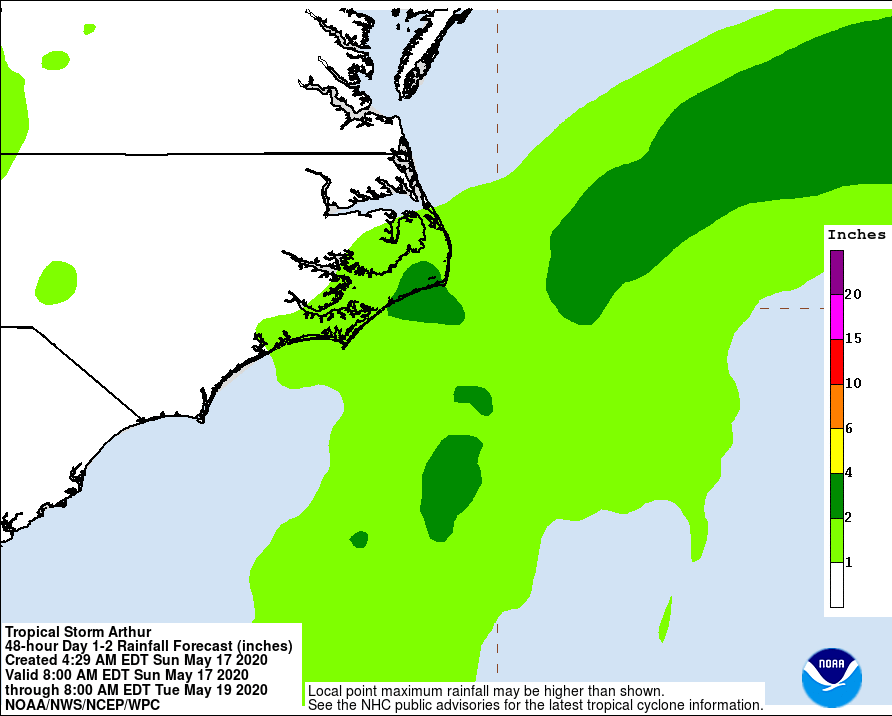
Rainfall could be locally heavy, especially along the Outer Banks. This map only shows areas expected to receive over an inch of rain, so while some areas from Southport northward towards Wilmington will receive rain, it is expected to be less than an inch.
While the impacts from this storm are expected to be relatively minor, be sure to remain weather aware and follow all local safety precautions. If you live in an area that is usually impacted by tropical weather, please take appropriate precautions. Coastal flooding may cause roadways to be closed at times, and as always, turn around when you come to a flooded roadway.
